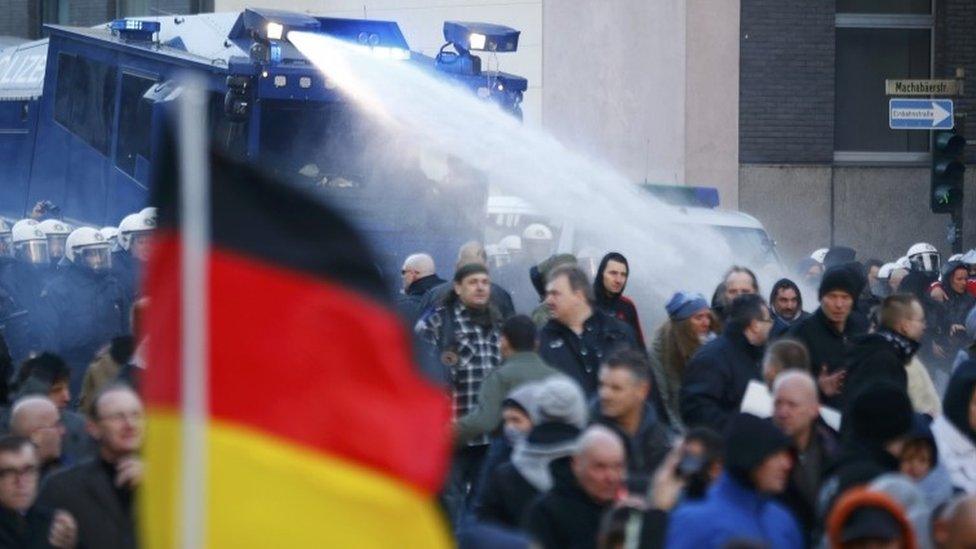Cologne attacks: Germany to make foreign deportations easier
- Published
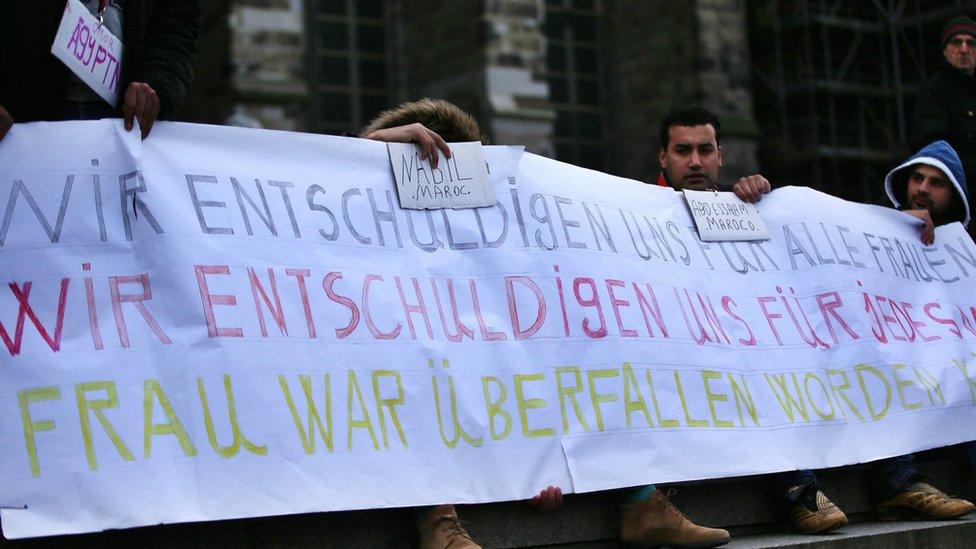
Migrants from Egypt and Morocco held up a banner at Cologne station apologising to women for the violence
Germany has announced plans to make it easier to throw out foreign criminals and strip sex attackers of refugee status.
The decision follows hundreds of sexual assaults and robberies on women in Cologne on New Year's Eve by men of mainly Arab and North African origin.
Justice Minister Heiko Maas said no-one could put themselves above the law.
Thousands of far-right protesters on Monday blamed the Cologne attacks on Germany's influx of refugees.
More than 1.1 million people claimed asylum in Germany in 2015.
Police in Cologne say 553 criminal complaints have been filed by women in Cologne, and 45% are for sexual assault. The authorities said on Monday the perpetrators were almost exclusively from an immigrant background.
Women describe 'terrible' assaults
Search for answers after sex attacks
Arab social media fury at Cologne violence
Is German far-right rise an echo of the past?
Speaking days after Chancellor Angela Merkel said "clear signals" had to be sent to potential offenders, Mr Maas tweeted, external that the core of the government's reforms would be to ease extradition of foreign criminals and strip them of refugee status if they had committed particular offences.
Penalties for sexual offences would be appropriate "regardless of current events", a government statement said (in German), external.
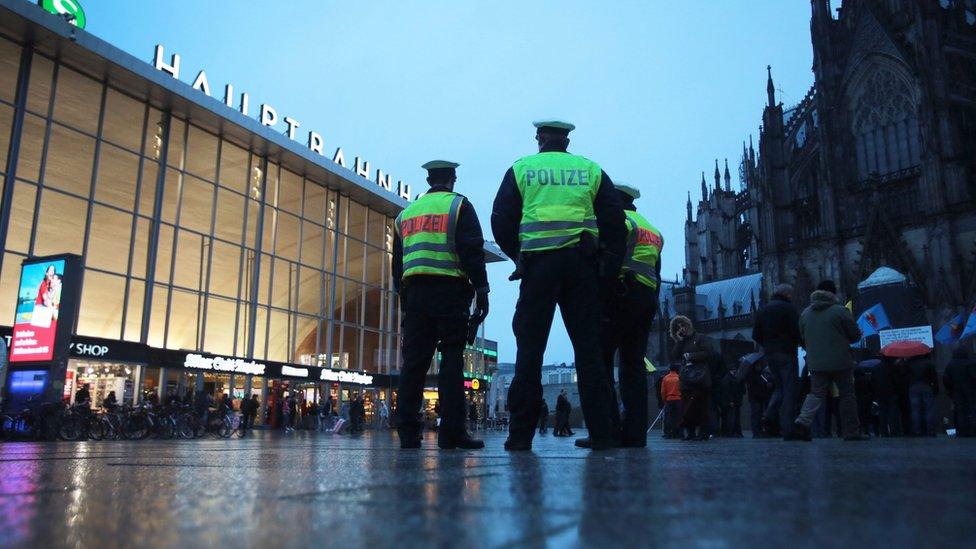
Police have revealed that they were unaware of sex attacks on New Year's Eve for several hours
"We will tighten criminal law to make deportation easier," Mr Maas said, adding that binding agreements would be sought with offenders' country of origin. But he stressed that migrants should not come under general suspicion.
Several women in Cologne were raped and the justice minister said the definition of the offence in German law was too narrow. "There's no clear answer in law to how much resistance a woman has to offer for an offence to constitute rape," he said.
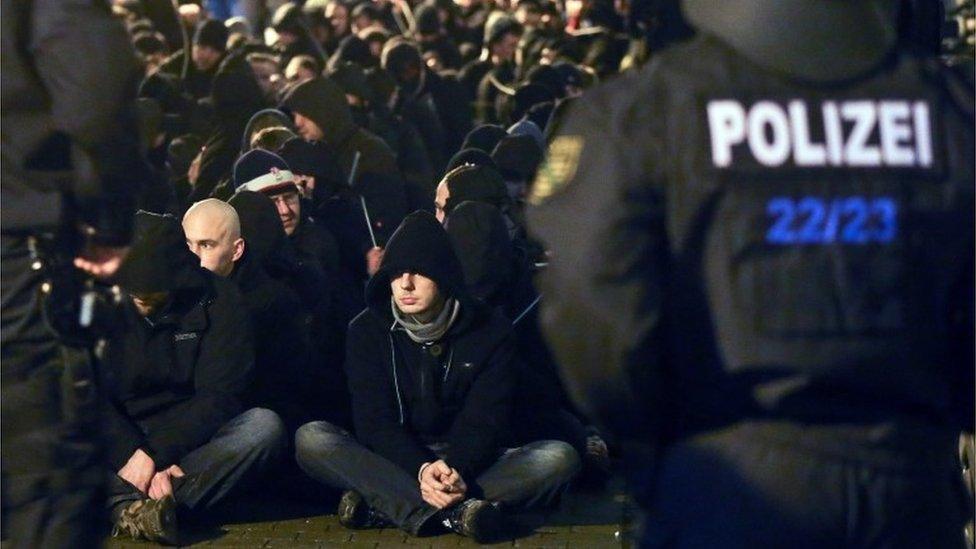
Police rounded up far-right supporters after the violence in Leipzig's left-wing district of Connewitz.
Some 2,000 supporters of Legida, the Leipzig version of the Patriotic Europeans Against the Islamisation of the West movement (Pegida), marched through the city on Monday.
They vented their anger at Chancellor Angela Merkel over her government's open-door policy on refugees.
As the protest took place, a group of far right extremists and football hooligans went on the rampage in the largely left-wing district of Connewitz, police said in a statement (in German)., external
Police made 211 arrests as buildings were vandalised and vehicles burned.
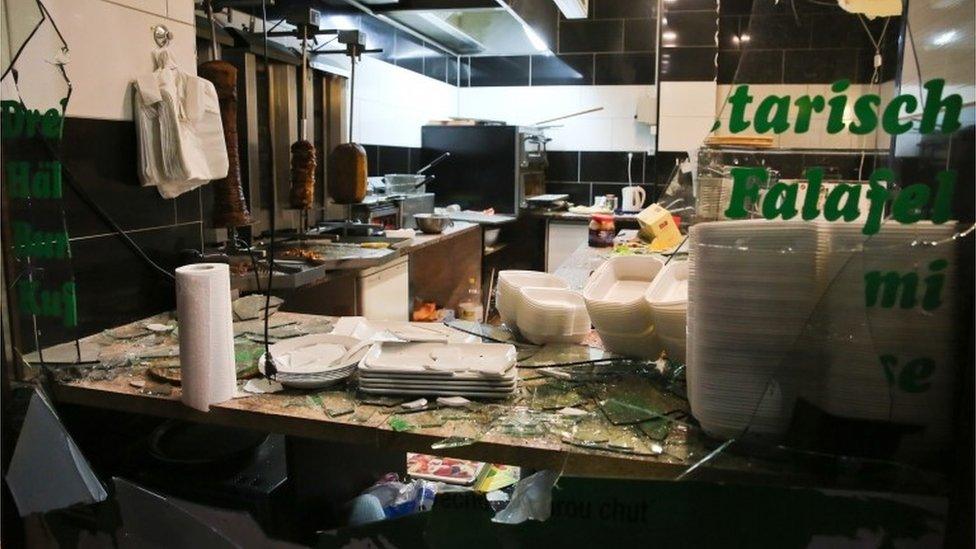
A window of a Turkish kebab restaurant is broken after a demonstration by Legida in Leipzig
Some 250 rioters smashed windows, burned cars and rubbish bins, and threw fireworks that set a floor of a building on fire, reports say.
Protesters opposing Pegida also held a counter-demonstration in Leipzig on Monday evening.
Left-wing activists vandalised a bus that had been hired by the far-right supporters. The police statement did not say whether any leftists had been detained.
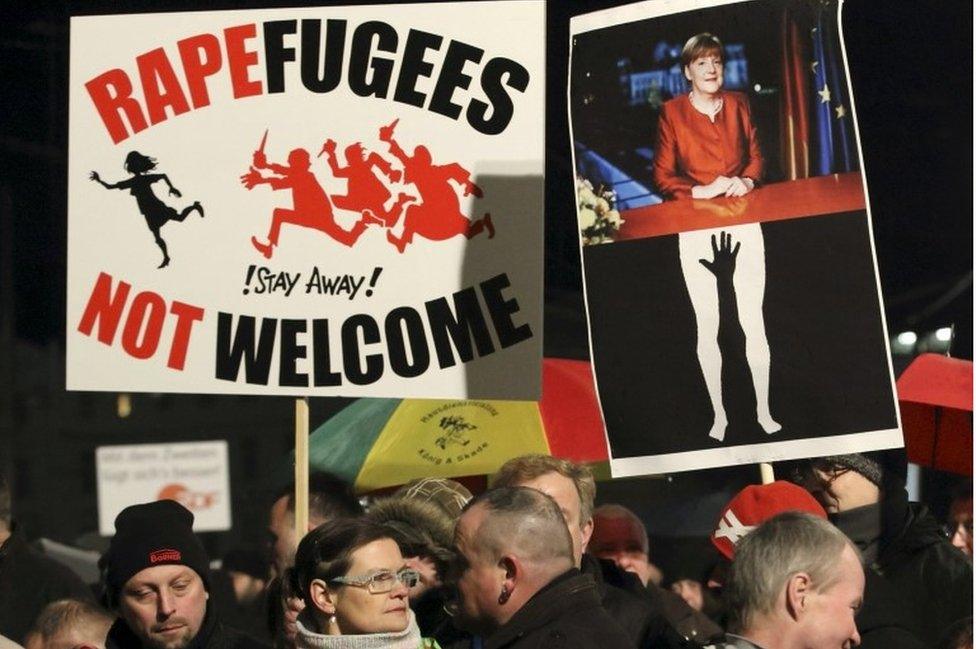
Legida supporters accuse Chancellor Merkel of putting women at risk by allowing the arrival of more than a million migrants in the past year
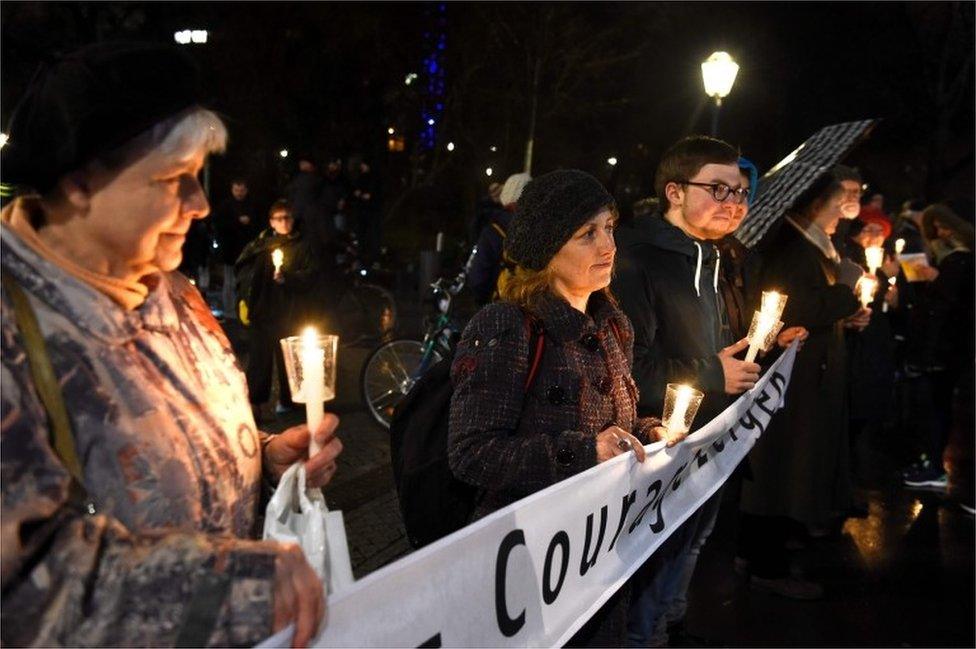
Anti-Pegida protesters, who fear creeping Islamophobia, held a counter-demonstration in Leipzig
The scale of the assaults on women in Cologne, Hamburg and some other German cities has shocked the country, and police handling of the events has been sharply criticised.
An official report said the attackers were "almost exclusively" from a migration background, mainly North African and Arab.
Cologne police also made "serious mistakes" in not calling reinforcements and the way they informed the public.
Since October 2014, several German cities have seen large "anti-Islamisation" rallies by Pegida.
The group wants Germany to curb immigration, accusing the authorities of failing to enforce existing laws.

New Year's Eve in Cologne (timeline as reported by police)

More than 550 attacks, 45% of them sex offences, were carried out on New Year's Eve
2100: 400-500 men of migrant background, some very drunk, gather outside station and on steps of Cologne Cathedral and let off fireworks in crowd. Those involved described as north-African/Arab
22:00 Victims say spate of robberies and sexual assaults starts, including rape; earliest attack reported at 19:00
22:25 Police send 10 officers to station area
22:50 More police (83 in total) sent to boost presence and another large group of males spotted inside the station
23:00 Crowd on square and cathedral steps swells to 1,000-1,500; flares thrown at square from cathedral area
23:00 Police say unaware of sex attacks because of large crowd
23:15 Commanding officer decides to clear area - evacuation starts 20 mins later but no more police drafted in
00:27 Police allow people returning from city fireworks display to return home
Victims say sexual attacks and thefts continue throughout the night in area and streets around station
00:50 Duty officers have first alert from woman of sexual assault and then discover large number of victims at police station
01:20 Police at Cologne station told to prevent crimes; women are urged to be careful
04:00 Tension finally eases

- Published11 January 2016
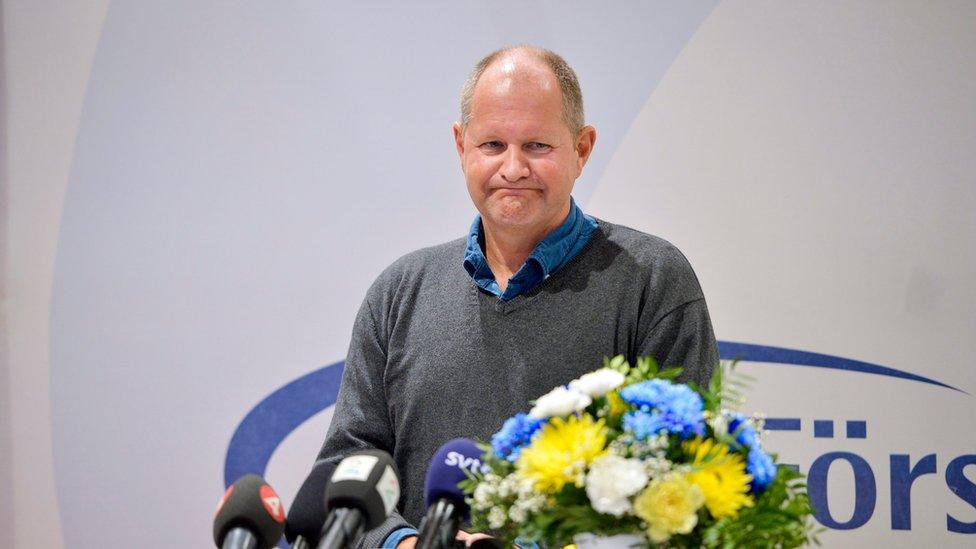
- Published9 January 2016
